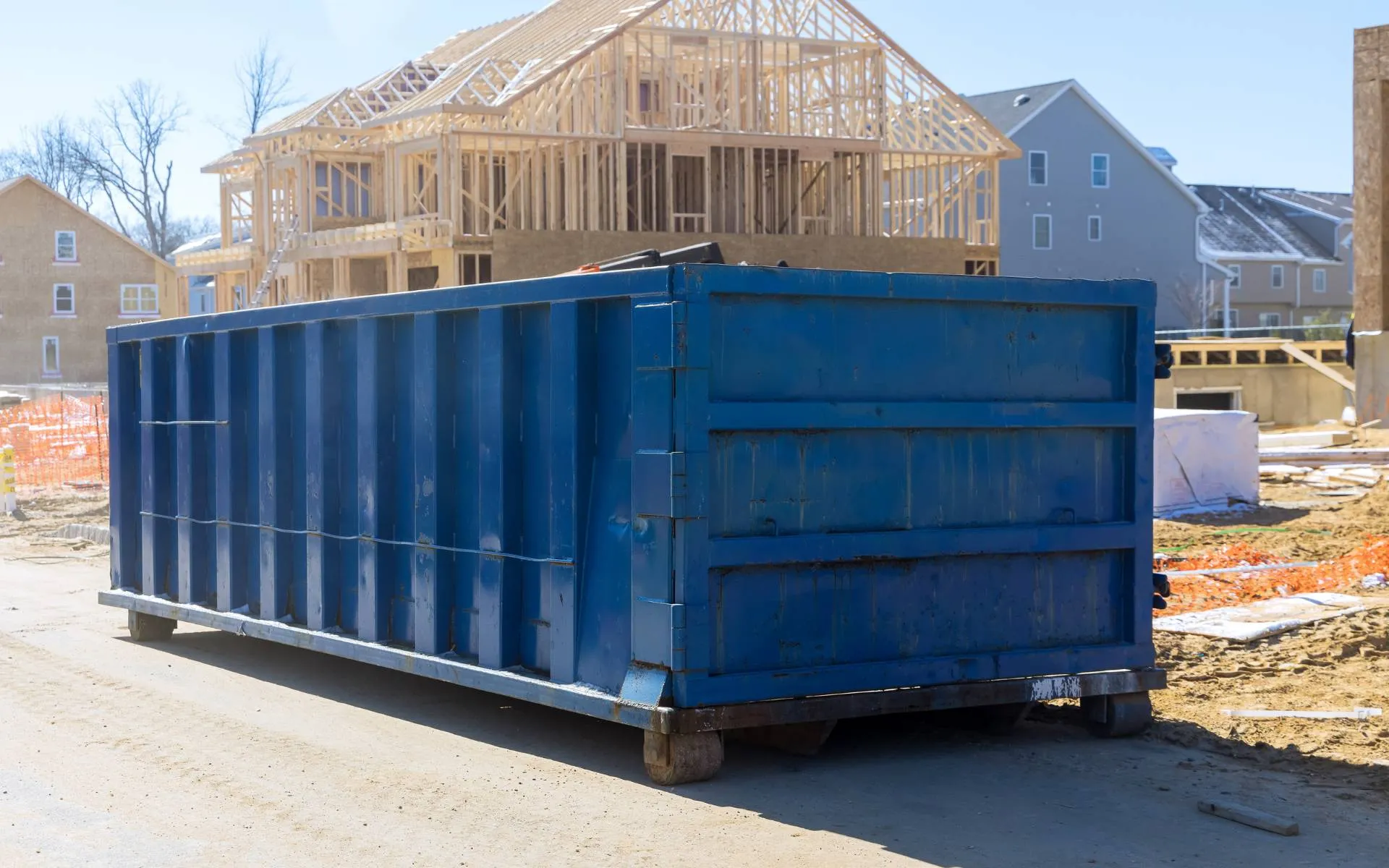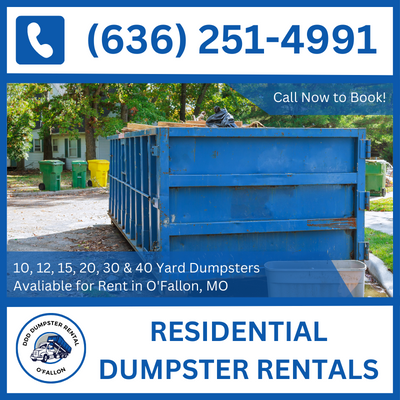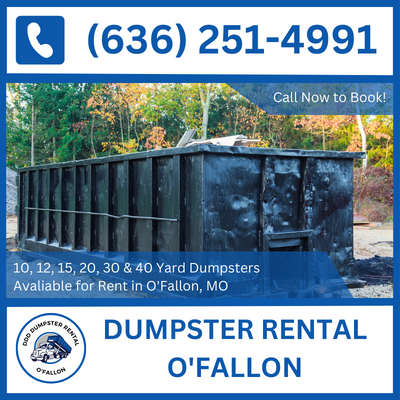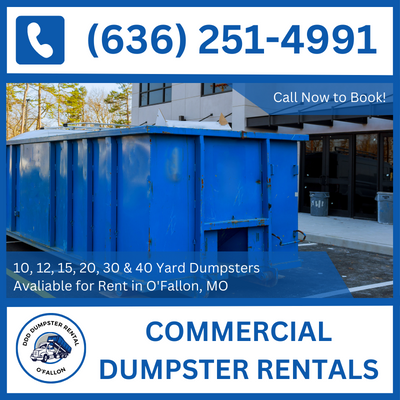The Ultimate Guide to Saving Money on Dumpster Rentals: Tips, Tricks, and Insider Secrets
Are you planning a home renovation, construction project, or a major cleanup? If so, you'll likely need to rent a dumpster to handle all the waste and debris. However, dumpster rentals can be expensive, and costs can quickly add up if you're not careful. That's why we've created this comprehensive guide to help you save money on your next dumpster rental.
In this article, we'll cover everything you need to know about affordable dumpster rental, including:
- Choosing the right dumpster size
- Understanding rental duration and timing
- Avoiding hidden costs and fees
- Implementing money-saving strategies
By following our expert advice, you can ensure that you get the best possible deal on your dumpster rental without sacrificing quality or convenience. Whether you're a homeowner, contractor, or business owner, this guide will provide you with the tools and knowledge you need to make informed decisions and keep your waste management costs under control.
So, let's dive in and discover how you can save big on your next dumpster rental project!
Understanding Dumpster Rental Costs
Hey there, let's chat about the nitty-gritty of dumpster rental costs. It's not the most thrilling topic, but trust me, understanding these factors can save you a pretty penny in the long run!
First up, let's talk about the biggest influence on your dumpster rental prices: size. It's like Goldilocks and the three bears - you want a dumpster that's just right. Not too big, not too small. The most common sizes are:
- 10 cubic yards (perfect for small projects)
- 20 cubic yards (a popular choice for medium-sized jobs)
- 30 cubic yards (ideal for larger renovations or construction)
- 40 cubic yards (for those massive cleanups)
Next, let's discuss distance and location. Just like in real estate, it's all about location, location, location! The farther your site is from the rental company, the more you might have to shell out for delivery and pickup. Keep that in mind when choosing a dumpster rental service provider.
Another factor that can impact your wallet is the rental duration. Most companies offer standard rental periods, but if you need more time, be prepared to pay a bit extra. It's like a late fee at the library, but with dumpsters.
Lastly, watch out for those sneaky additional services. Some companies might charge you for things like:
- Overage fees (if you exceed the weight limit)
- Late charges (if you keep the dumpster longer than agreed)
- Tipping fees (the cost to dispose of your waste at the landfill)
- Hidden costs (always read the fine print!)
To sum it up, when budgeting for your dumpster rental, consider the size, location, duration, and any extra services you might need. By understanding these factors, you'll be well on your way to saving some serious cash on your next project. Happy renting!
Choosing the Right Dumpster Size
Alright, folks, let's dive into the world of dumpster sizes! Choosing the right size is like trying to find the perfect pair of jeans - it can be tricky, but once you find the right fit, you'll feel like a million bucks.
First things first, why is picking the right size so important? Well, imagine this: you're halfway through your project, and suddenly you realize your dumpster is overflowing. Yikes! Not only is it a major eyesore, but you could also face some hefty overage fees. Trust me, it's not a fun surprise.
On the flip side, if you go too big, you might end up paying for space you don't need. It's like buying a family-sized bag of chips when you're living alone - a waste of money and space.
So, how do you find that perfect fit? Start by estimating your waste volume. Think about what you're tossing out and how much space it'll take up. Here's a quick rundown of the most common dumpster sizes and their capacities:
If you're still unsure, don't be afraid to ask for help! Dumpster rental companies deal with this stuff all day long, and they're usually happy to offer guidance based on your project type and size.
Now, let's talk about the consequences of choosing the wrong size. If you go too small, you might end up with:
- Overage fees that can add up quickly
- The need to rent a second dumpster (which means double the cost)
- A cluttered work site that's harder to navigate
On the other hand, if you choose a dumpster that's too large, you'll be:
- Paying for wasted space you don't need
- Taking up more room on your property than necessary
- Spending money that could be better used elsewhere
In short, taking the time to choose the right dumpster size is a crucial step in saving money and minimizing headaches during your project. Don't be afraid to ask questions, get multiple opinions, and really think about your specific needs. With a little bit of planning, you'll be able to find that perfect dumpster fit and keep your project rolling smoothly!
Comparing Prices and Negotiating Terms
Alright, let's talk about everyone's favorite topic: saving money! When it comes to dumpster rentals, one of the best ways to keep costs down is by shopping around and comparing prices. Trust me, a little bit of research can go a long way.
First off, why should you bother comparing prices? Well, just like any other service, dumpster rental companies can vary wildly in their pricing. Some might charge an arm and a leg, while others offer competitive rates. By taking the time to compare quotes, you could potentially save hundreds of dollars on your rental.
Now, I know what you're thinking: "Comparing prices sounds like a lot of work!" But fear not, my friend, because there are some simple ways to make the process a breeze. Here are a few tips:
- Make a list of local dumpster rental companies in your area
- Visit their websites or give them a call to request quotes
- Be sure to provide each company with the same information (dumpster size, rental duration, etc.) for accurate comparisons
- Use online resources like price comparison tools or customer reviews to help narrow down your choices
Once you've gathered a few quotes, it's time to put on your negotiating hat. Don't be afraid to ask for discounts or see if a company can match a competitor's price. Many dumpster rental services are willing to work with you, especially if you're a first-time customer or planning to rent for an extended period.
Remember, the worst they can say is no, but you might be surprised at how often a little negotiating can pay off.
Lastly, don't forget to read the fine print before signing any contracts. Make sure you understand the terms and conditions, including any hidden fees or charges that could pop up later. By being an informed consumer and taking the time to compare prices and negotiate terms, you'll be well on your way to securing the best possible deal on your dumpster rental.
Timing Your Dumpster Rental
Alright, let's chat about something that can make a big difference in your dumpster rental costs: timing. Just like how you wouldn't wear a swimsuit in the middle of winter (unless you're into polar bear plunges), there are certain times when renting a dumpster can be more expensive than others.
First, let's talk about peak vs. off-peak rental periods. Peak rental times are typically during the summer months and on weekends when everyone and their uncle seems to be tackling home improvement projects. During these busy times, dumpster rental companies often have higher prices due to increased demand.
On the flip side, renting during off-peak periods, like in the fall or winter months, can potentially save you some serious cash. Companies might offer seasonal discounts or promotions to keep their business rolling during slower times.
Another factor to consider is how far in advance you schedule your rental. Booking early can help you secure a better price and ensure that you get the dumpster size you need. It's like buying concert tickets - the early bird gets the worm (or in this case, the best deal).
Now, let's talk about rental duration. Most companies like DDD Dumpster Rental O'Fallon offer standard rental periods, like a week or two. But what if you need more time? Well, buckle up because extending your rental can come with some additional costs. It's important to communicate with your dumpster rental company and be realistic about how long you'll need the dumpster. If you think you might need more time, it's often cheaper to rent for a longer period upfront rather than tacking on extra days later.
By being smart about when you rent and how long you rent for, you can potentially shave a nice chunk of change off your total dumpster rental costs. So, before you make that reservation, take a moment to consider the timing and duration that works best for your project and your wallet.
Reducing Waste and Maximizing Space
Hey there, eco-warriors and savvy savers! Let's talk about two things that can make a big difference in your dumpster rental costs: reducing waste and maximizing space. By being mindful of what you toss and how you toss it, you can keep more money in your pocket and do a little good for the planet too.
First up, let's chat about the three R's: reduce, reuse, and recycle. Before you start chucking things into your dumpster rental, take a moment to consider if there's another way. Could that old dresser be donated to a charity? Can those scrap metal pieces be recycled? By finding alternative homes for your unwanted items, you'll have less to throw away, which means you might be able to rent a smaller (and cheaper) dumpster.
Now, let's talk about prohibited items and hazardous waste. Not everything belongs in a dumpster, and tossing the wrong things can result in some hefty fines. Here are a few common no-no's:
- Chemicals and solvents
- Batteries and electronics
- Tires and oil
- Paint and lacquer
- Medical waste
If you're unsure about something, always check with your dumpster rental company first. They can provide you with a full list of prohibited items and guide you on how to properly dispose of them.
Alright, now let's dive into the art of maximizing space. Just like playing Tetris, fitting everything into your dumpster efficiently can make a big difference. Here are some tips:
By being strategic about how you load your dumpster, you can make the most of the space you have and potentially avoid the need for a second rental.
Lastly, consider junk removal and hauling services if you have a lot of waste or large items. These professionals can help you load your dumpster efficiently and even handle the disposal of prohibited items. While it's an additional cost, it can save you time and backache in the long run.
So, before you start your next project, remember: reduce waste where you can, be mindful of hazardous materials, and channel your inner Tetris master when loading your dumpster. Your wallet (and the planet) will thank you!
Dumpster Rental Safety Tips
Alright, folks, let's take a moment to talk about something seriously important: safety. I know, I know, it's not the most thrilling topic, but trust me, you don't want to be the person who ends up on the evening news because of a dumpster rental mishap.
First and foremost, let's discuss safe loading practices. I like to think of it as a real-life game of Jenga - you want to make sure everything is stacked nice and neat, so it doesn't come tumbling down on you. Here are a few tips to keep in mind:
- Wear gloves and close-toed shoes to protect your hands and feet
- Use proper lifting techniques (bend at the knees, not the back)
- Don't overload the dumpster or pile items too high
- Be aware of your surroundings and any potential hazards
Next up, let's chat about our little ones and furry friends. While it might seem like a fun playground, dumpsters are no place for children or pets. Make sure to keep them away from the rental area to prevent any accidents or injuries. Trust me, you don't want to make a trip to the ER because little Timmy decided to play hide-and-seek in the dumpster.
Now, let's talk about the icky stuff: hazardous materials. If you're dealing with anything questionable, like chemicals, asbestos, or oil, make sure to follow proper disposal protocols. Don't just chuck it in the dumpster and hope for the best. Not only is it illegal, but it can also lead to some serious safety hazards and hefty fines.
Lastly, let's discuss the financial implications of dumpster rental accidents. Injuries, property damage, and improper disposal can all lead to some major expenses. Make sure you're covered by checking with your rental company about insurance options and reading through your rental agreement carefully.
By following these simple safety tips, you can keep yourself, your loved ones, and your wallet out of harm's way. Remember, a little bit of precaution goes a long way when it comes to dumpster rentals. Stay safe out there, folks!
Additional Money-Saving Strategies
Hey there, penny pinchers and savvy savers! We've covered a lot of ground in this guide, but I've still got a few more tricks up my sleeve to help you save some serious cash on your dumpster rental. Think of these as the cherry on top of your money-saving sundae.
First, let's talk about local dumpster rental companies. While the big national chains might have flashy advertisements and slick websites, don't overlook the little guys. Local companies often have lower overhead costs, which means they can offer more competitive pricing. Plus, you'll be supporting a business in your community, which is always a win-win.
Next, let's chat about the power of teamwork. If you've got a neighbor or nearby business that also needs to rent a dumpster, consider splitting the cost. Not only will you save money, but you'll also foster some goodwill in your community. Just make sure to establish some ground rules upfront, like who's responsible for what and how you'll divide the space.
Now, let's talk about the thrill of the hunt. No, I'm not talking about stalking wild animals - I'm talking about hunting for deals! Keep your eyes peeled for coupons, discounts, and promotions from dumpster rental companies. You never know when you might stumble upon a special offer that could save you a bundle.
Lastly, let's think outside the dumpster. While renting a dumpster is often the most convenient option, there might be alternative waste disposal methods that could save you money. For example, if you have a smaller amount of waste, consider hauling it to the landfill yourself. Or, if you've got a lot of recyclable materials, see if your local recycling center offers free or discounted drop-off options.
By getting creative and exploring all your options, you might be surprised at how much money you can save on your waste disposal needs. Remember, every little bit adds up, so don't be afraid to think outside the box (or the dumpster, in this case).
Well, there you have it, folks - a treasure trove of money-saving strategies for your next dumpster rental. By following these tips and the rest of the advice in this guide, you'll be well on your way to keeping more of your hard-earned cash in your pocket. Happy saving!
Conclusion
Congratulations, my frugal friends! You've made it to the end of our ultimate guide to saving money on dumpster rentals. Let's take a moment to recap some of the key takeaways:
- Choose the right dumpster size for your needs
- Compare prices and negotiate terms with rental companies
- Time your rental wisely to avoid peak periods and snag discounts
- Reduce waste, maximize space, and dispose of items properly
- Prioritize safety and protect yourself from potential financial pitfalls
- Get creative with alternative disposal methods and cost-sharing strategies
By implementing these money-saving tips, you'll be well on your way to acing your next waste management project without breaking the bank. Remember, a little bit of planning and research can go a long way in keeping your dumpster rental costs under control.
So, go forth and conquer your cleanup with confidence, knowing that you've got the tools and knowledge to secure the best possible deal on your dumpster rental. Happy saving, and happy dumping!




No comments:
Post a Comment